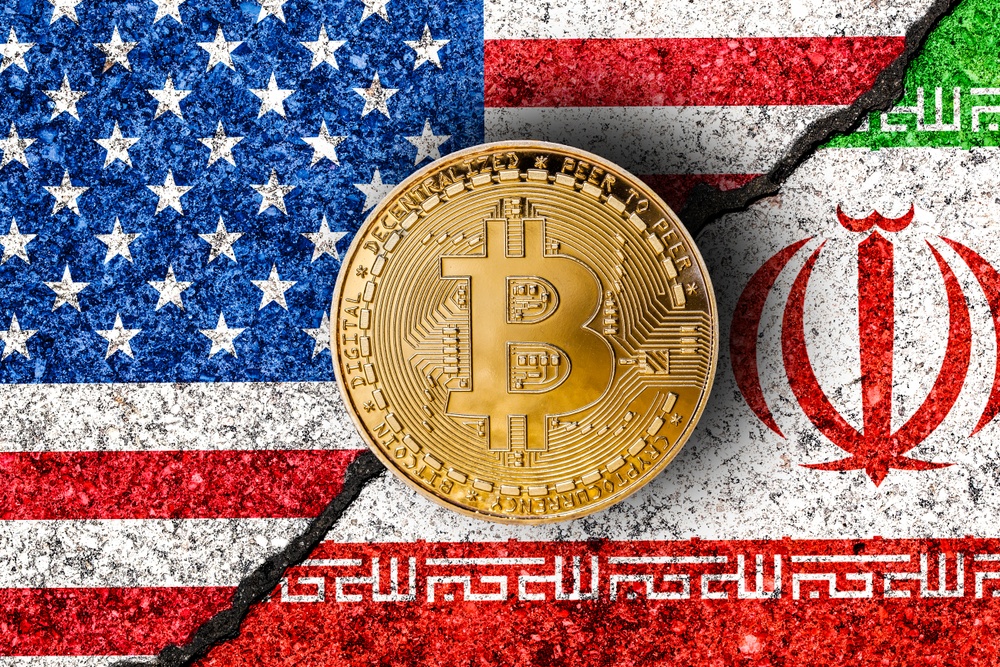Iran Punks Trump With Historic Gold-Backed Crypto Scheme

Iran punked bitcoin-bashing U.S. President Donald Trump by unveiling a gold-backed cryptocurrency - just days after Trump slammed crypto. | Source: Shutterstock. Image Edited by CCN.com.
Days after President Trump slammed bitcoin and the very idea of crypto, geopolitical foe Iran revealed that it is ready to unveil its own gold-backed cryptocurrency.
Gold held in reserve by the Middle East country’s central bank will back the value of tokens on the blockchain of Iran’s new central bank “cryptocurrency” – which might be a generous term. The crypto will be mined by a small consortium of private Iranian tech companies.
The move could further complicate tensions between the oil-rich country and the United States. News of the major geopolitical and monetary development comes from a report from Mehr News.
According to the Tehran-based news agency’s English language website, the Central Bank of Iran (CBI) has given permission for the new crypto to be unveiled. Shahab Javanmardi, CEO of FANAP – an Iranian information and communications technology (ICT) firm – revealed:
“The Iranian cryptocurrency is backed by gold but its function is similar to foreign rivals. The domestically encrypted money is to ease optimal use of Iranian banks’ frozen resources.”
Iran’s Complicated Bitcoin Crackdown

Announcement of Iran’s new state cryptocurrency came days after the CBI banned all private cryptocurrencies and crypto-businesses in the country, Mehr News notes.
The legal and regulatory status of bitcoin in Iran is, however, far from clear. Different authorities in varying agencies have issued contradictory statements. They seem as perplexed and uncertain of what to do about cryptocurrency as financial authorities in the United States.
The FANAP CEO urged the government to continue the clamp down on bitcoin in Iran. Last month authorities seized 1,000 bitcoin mining rigs in the Yazd province.
The Iranian government may be fighting a losing battle against bitcoin mining in their country. The petrol nation is a paradise for bitcoin miners. Because it has some of the cheapest energy costs in the world, Iran is an extremely profitable place to mine bitcoin.
The U.S. has accused Iran of using bitcoin to circumvent international sanctions. Nevertheless, with the crackdowns by authorities, it looks to be more the case that its domestic bitcoin industry is something beyond the Iranian government’s control.
Central Bank Cryptocurrencies on the Rise
As Irish playwright Oscar Wilde once said, “Imitation is the sincerest form of flattery that mediocrity can pay to greatness.” By Wilde’s estimation, many of the world’s central banks are paying the most sincere flattery to bitcoin, ethereum, and other large-cap cryptocurrencies.
As of 2019, 70% of the world’s central banks are working on digital currencies, though most are in no hurry to field one. Iran’s central bank move could change that.
In Venezuela, President Maduro launched a state cryptocurrency backed by oil last year: the Petro. Last month he ordered the oil-rich South American country’s largest bank, the Bank of Venezuela, to open trading desks for the controversial asset.
Singapore’s central bank hasn’t deployed a full-blown cryptocurrency, but it has issued tokens of its national fiat currency, the Singapore dollar, on an ethereum-based private blockchain. That was in 2017.